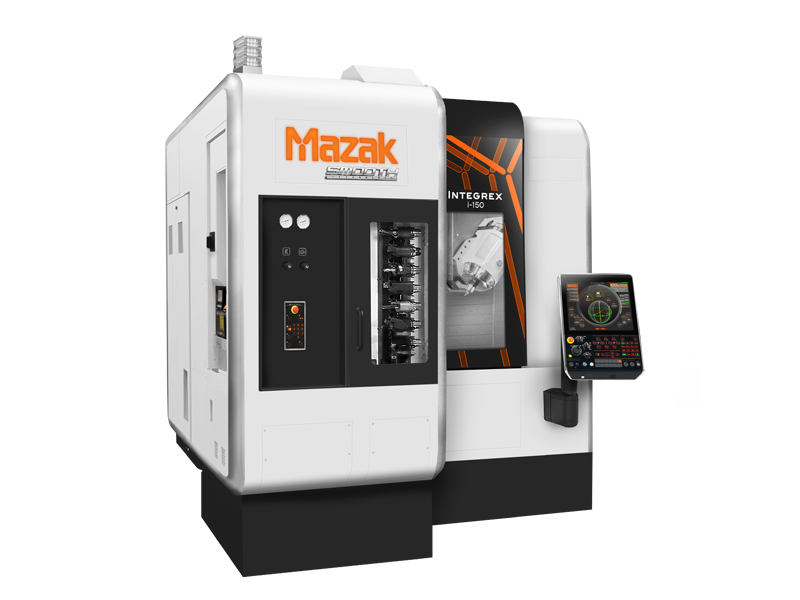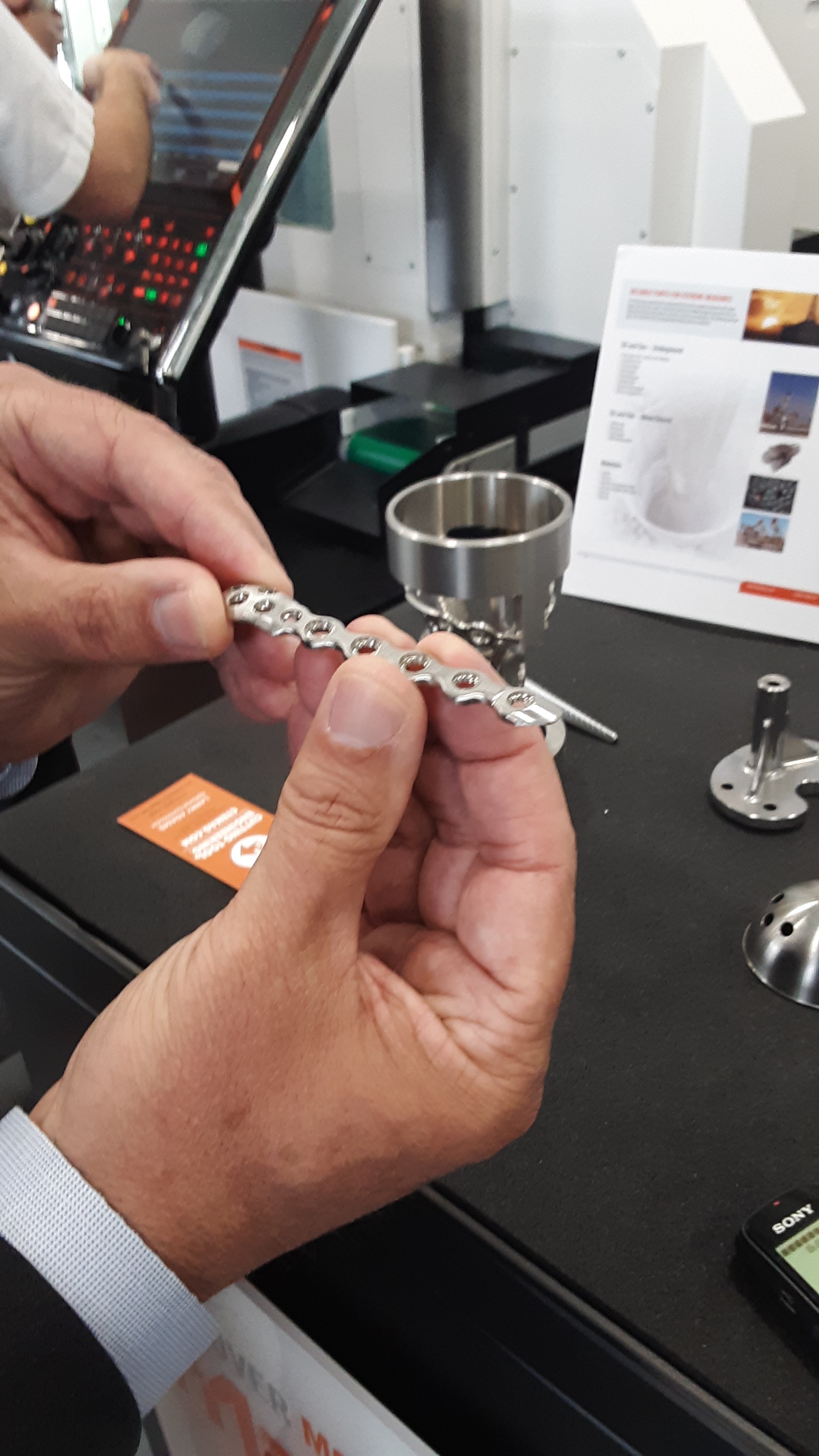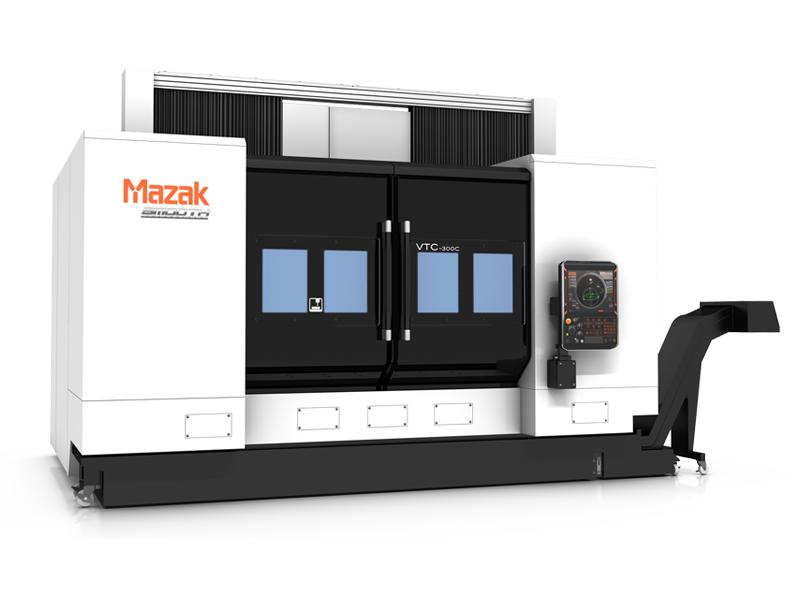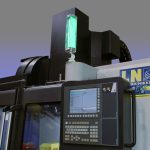Multitasking by Mazak
Multitasking by Mazak
Multi-tasking machines for big parts, small parts and everything in between were on display at the Discover More with Mazak Midwest 2019 event. The May 9 event featured a variety of multi-axis machines. Kevin Bates, general manager - Midwest Region at Mazak Corp., provided Cutting Tool Engineering with a tour of some of the high-productivity technology on display at Mazak's Midwest Technology Center, Schaumburg, IL.

 Multi-tasking machines for big parts, small parts and everything in between were on display at the Discover More with Mazak Midwest 2019 event.
Multi-tasking machines for big parts, small parts and everything in between were on display at the Discover More with Mazak Midwest 2019 event.
The May 9 event featured a variety of multi-axis machines. Kevin Bates, general manager - Midwest Region at Mazak Corp., provided Cutting Tool Engineering with a tour of some of the high-productivity technology on display at Mazak's Midwest Technology Center, Schaumburg, IL.
Bates said that the company has a "multi-tasking solution for every application" whether that is producing small parts with unit cycle times of less than a minute or large, complex components that require a full week of machining.
"We are continuously trying to push the envelope when talking about multi-tasking. We try to do more operations than just live tooling or moving the Y axis," Bates said.
The wide variety of multi-axis machines on display included the Variasxis i-600, which is a simultaneous 5-axis vertical machining center, that performs multiple and complex curved surface machining on small and medium-sized workpieces in single setups. The machine falls within Mazak's Done In One concept by incorporating all processes from raw material input through final machining in just one machine. As such, the machine reduces production lead times, improves machining accuracy and lowers operating expenses. It was displayed with a MPP (Multi Pallet Pool), which is a compact, expandable pallet stock system.
Another vertical machine on display was the VTC-300C, a machining center with a 40-taper spindle, full traveling column design, and fixed table for machining long and heavy workpieces. What makes this product unique, Bates said, was that it has a table center partition that allows the machine work envelope to be transformed into two separate work areas. "It allows the machine to be cycling a part in one work area, while a second part is set up in the other."
For smaller parts, Bates pointed out the Integrex I-150 that he said was very popular especially with medical device manufacturers looking to produce sma ll parts. This machine, which has been in the company's stable or products for a few years, features up to 20,000 RPM in the milling spindle, and a unique, programmable, workpiece handling device that allows milling operations to the back face. This machine configuration works to minimize fixtures, tools, handling and non-cut time. It almost turns into a machining center, Bates said.
ll parts. This machine, which has been in the company's stable or products for a few years, features up to 20,000 RPM in the milling spindle, and a unique, programmable, workpiece handling device that allows milling operations to the back face. This machine configuration works to minimize fixtures, tools, handling and non-cut time. It almost turns into a machining center, Bates said.
The technology on display incorporated the company's Smooth Technology system that spans the entire part production landscape from programming and metal removal to automation and data collection. Modules that are apart of the MTConnect ready technology deals with tool management and tool data converter. These solutions provide tool data management and tool life utilization to ensure preventive maintenance. Another module is the Spindle Analytic that monitors the spindle's drive and vibration levels in real-time.





